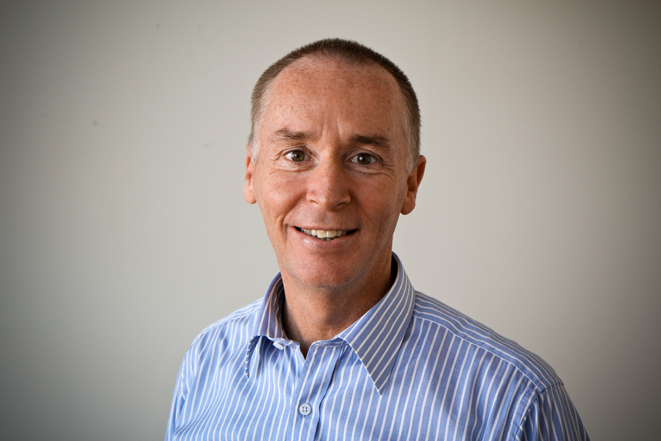A note from Showcase Workshop CEO, Millie Blackwell:
The Showcase Advisory Board is unlike any other board at any other company in the world. And that’s exactly how we designed it.
At Showcase we thrive on solving challenges creatively — and asking typical business-people to join a typical advisory board to give us typical advice … well, that just won’t cut it.
Over the next few weeks, I'm going to introduce each of our three board members. I’ve spent time with each of them, peppering them with questions so that I — and now you — can get to know them better.
These three human beings are such forces of nature, such outstanding specimens, that I knew our customers and fans would get immense value out of meeting them too.
Today I’d like to introduce you to Mike Bennetts.

Have you ever met someone who immediately made a lasting impression?
I'm sure you have.
Maybe someone you met in passing, or were briefly introduced to, or run into in your line of work who made you think... oh right, so that's how a total pro does it!
For me, Mike Bennetts was one of those people.
Several years ago (how many years, I’ll never tell), I was a junior agency person monitoring a client’s table at a retailer conference. My responsibility that particular day was to make sure no one pinched the iPads that Z Energy was giving out as prizes.
Near the end of the event, the CEO of Z Energy came up to me and said, “Thanks very much for your help, Millie.”
I was impressed. This was a guy I had just seen giving an inspiring presentation to a very quiet, engaged audience — and he had actually bothered to ask someone my name, then taken the time to personally thank me.
In that moment, I knew Mike Bennetts was the type of leader I would like to be one day.
Fast-forward to 2014, Mike became an early investor in Showcase. In the past four years I’ve grown to admire him even more. As a shareholder he’s always been direct, but never rude. Thoughtful, but not theoretical. He doesn’t tell people what to do, but rather asks them questions to help them see for themselves what the right decision is. And when needed, he's been willing to roll up his suit trousers and step into the weeds.
Read on for Mike’s story and some powerful leadership lessons for all of us.
From Globetrotting Exec to Forward-thinking CEO
Mike entered the oil & gas industry when he was only 21 years old. Over his long career, he’s occupied almost every role there is — from marketing to sales to information technology to finance. He gravitated toward leadership positions, and was eventually placed in elite leadership development programs within BP.
As he worked through the BP programs to more demanding assignments, with senior leaders guiding his career, he was able to tackle bigger roles in locations like China, South Africa and London. BP gave him a chance to shine — and he took that chance and ran with it.
When he first arrived at his new role in South Africa, the business unit was a mess. It was ranked number 42 out of 44 in terms of its performance. Mike had earned a reputation for being skilled at managing change and bringing people along — so BP shipped him out to this location with high hopes.
They weren’t wrong.
Within a year, the business unit went from number 42 to number 11 in performance.
It wasn’t long, though, before Mike began feeling uneasy.
“I realized that I had become too dependent on the BP system to feed me and manage my career,” Mike said.
Still a dedicated BP employee, he began wondering how he could take a more active role in guiding his career (and making himself an attractive employee) while still giving his all to BP.
“One of my favorite phrases is, ‘Leaders are leading, or the circumstances are,’” Mike shared.
He believes that a lot of people go through life simply responding to their circumstances — but good leaders don’t wait for circumstances to present gaps for them to respond to. True leaders seek out those gaps and proactively solve them.
Mike put it this way: “I'm constantly looking for that next gap for myself personally, for the company, for the people that I work with, rather than go with what I call the drift where stuff just happens.”
For Mike, many of those gaps had to do with commitment to people. He was a firm believer in prioritizing and promoting an employee-centric culture, which sometimes put him at odds with the company’s desire to cut costs.
What eventually led Mike to leave BP in 2008 was that there was a growing disconnect between his values as a leader and BP’s priorities.
He always believed BP was a great company, but he knew he had to be true to himself — and that meant moving into a position where he could put his people first.
The Leadership Epiphany: Your People Notice More Than You Might Think
It could be that Mike is just more aware of other people than most — that is certainly true in his leadership style — but in his career he noticed something most leaders don’t pay a lot of attention to:
How closely people watch their leaders.

Mike told me of a time when he wore jeans to one of the Z Energy locations in New Zealand. He didn’t think much about it — normally he wears a suit, but on that day and going to that location, jeans made more sense to wear — but many people asked him about it or made comments.
Wearing jeans — such a small thing. But his people noticed.
“It's something you need to think about. People are watching what you do or don't do all the time, and they're constantly reading meaning into what you do or don't do — whether you intend it or not,” Mike said. “And if you can get tuned into that as a leader, you can be more mindful of how you behave, what you do, what you don't do, and the ripple that you leave throughout the organization.”
With technology, especially, Mike cautions leaders to pay attention to their habits — but also encourages leaders to use it to open a dialogue with their teams.
Email timestamps used to be one of the few giveaways for when a person was working. Now with today’s tech, we can see when someone’s online, and even what location they’re working from. But that doesn’t necessarily mean that the person is working!
Mike noticed that his employees were commenting about his extended workdays — but he didn’t think he was putting in any hours beyond the norm. He quickly figured out it was because when he plugged his laptop into the docking station at home, it appeared to his team that he was online.
“I just changed apartments,” he said, “and my new apartment has Wi-Fi while my old one didn't. So [all of a sudden] it looked like I worked all weekend. And people were looking at that.”
Mike understands that most people have an unspoken expectation that they should be available if the boss is online. Between appearing to be online at odd hours, and sending emails to his employees outside of their working hours, he knew it was putting undue pressure on his team.
Once he realized the problem, he was quick to solve it.
First, he’s now quick to explain to his team members that just because it looks like he’s working, it doesn’t mean he is.
Second — and here’s a great tip for anyone who works odd hours — he uses the delayed delivery feature on his email program. He schedules emails to his team to arrive staggered after 8 AM (he’ll schedule them for 8:01, 8:05, 8:07, etc.) so that people won’t automatically assume he was working the night or weekend before.
“You're also being mindful, you're being considerate of them,” Mike said. “You don't want them to have to get an email at 7:30 on a Saturday and think that they need to worry about it or respond to it.”
Putting Energy at the Top of the Priority List
One of the things I admire most about Mike is his seemingly unending energy to get things done and still be available to others. I asked him if he had any habits or principles he could share.
“A lot of people talk about time, and time is less relevant than energy,” he said. “I work really hard on energy, and I do everything that I can to make sure that I'm in tip-top condition.”
For Mike, this means…
1. Staying in his own lane. He challenges himself to look at how he’s spending his time, making sure he’s only doing what the chief executive could do — and staying away from tinkering in other areas, as tempting as it may be.
2. Exercising, eating right, sleeping well. He invests in his health and well-being because, “You might be able to work 18 hours a day, but if you don't have the energy for 18 hours, you're sort of screwed. But if you have really good energy, you can get more done in nine hours a day.”
3. Deliberately putting himself into situations that energize him. For example, investing in Showcase :) — and now formalising his involement in our Advisory Board. Mike structures his time so there’s a good rhythm of energizing activities to balance out the activities that deplete him. He finds that this keeps his resilience high, so when unexpected things turn up, he can more easily work through them.
“As you get older and get more experience,” Mike shared, “You have to start get a little bit like an athlete. You’ve got to start to modify your training and your on-field performance as a match to where you're at — and not default to ‘hey, I'm old, I can't do that anymore.’ You have to be more mindful about what you take on, how you take it on, and the way in which you keep your resilience up.”
Balance Is a Myth: Successful Organizations Focus on Harmony

Mike’s statement of “It’s energy, not hours” applies equally as well to organizations. Instead of approaching energy management from the typical standpoint of “balance,” however, he takes his cue from nature and lets harmony lead the way.
“All the important things to me in my life are generally in harmony rather than in balance,” Mike said. “Balance suggests a zero-sum game.’”
Mike thinks of harmony like a spiderweb. It might start off rather symmetrical, but as circumstances happen around it, it starts to change shape based on its environment. It still works, it still has integrity, but it’s no longer symmetrical.
In fact, it’s this organic, somewhat artistic viewpoint of harmony that drives his organizational theories as well.
In his year off between leaving BP and joining Z Energy, Mike took some time to crystallize his thoughts on organizational function.
“It's even why I came to Z,” he said, “because I have a point of view on how organizations or successful organizations in the future need to function — and it's a much organic or biological model than what's typically engineering model…I joke with the folks at Z that I'm just running this really big experiment, I'm like this mad professor in the lab coat that everyone sees as a lab rat.”
Mike’s Counterintuitive Advice for Dealing With Criticism
One thing that’s always challenging in a leadership role — any leadership role — is that you’re an easy target for criticism.
Mike’s advice on how to deal with this was a surprise.
First, he said, ignore the common wisdom that says not to take it personally. He thinks you should take criticism personally, but come at it from the perspective of “something’s missing.” Assume you don’t have the whole story. Figure out what’s missing from the conversation that makes you personally attacked or feel like you’re being personally attacked.
Second, if you’re in a leadership position where you’re personally identified with the brand — welcome to the club. You can’t just have all the good times, and be invisible or inconsistent with your values when things get tough.
Third, always be values driven. Be bold and passionate about your values, and stand up for those values even when it’s hard.
“It's easy in the CEO role to act in your best interest rather than continually challenge yourself to say what's the best thing for my company, my employees, my shareholders, and my stakeholders,” Mike laments.
The Secret of Success: Learn from Diverse Sources
At the end of my call with Mike, I asked him what kind of books he likes to read. He happily rattled off the different genres — business books, autobiographies, a bit of fiction — and then he said something that reaffirmed why he's such an asset to the Advisory Board at Showcase:
“In the last year I've spent 20% of my time learning and developing — because what the company needs to be successful in the future, I didn't have all of that under my belt like I have had for the past seven years.”
Especially today, when business changes and a rapidly increasing pace, Mike believes you have to learn from sources that are as diverse as possible, and not just keep consuming things that reinforce your existing frame of mind.
At first glance, it might not be obvious how an oil exec could help a software founder — but under the surface, shared values and an unrelenting drive to better the company for everyone are why Mike has made such an impact on Showcase.
Look out for our next introduction coming soon!